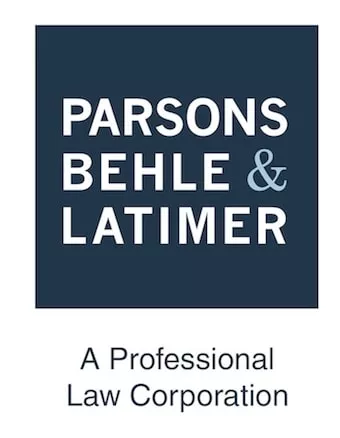- with readers working within the Banking & Credit and Healthcare industries
Employment Law Update
By Paul R. Smith
What Can Brown Do for You? Put You on Unpaid Leave
Working through the interactive process required by the Americans with Disabilities Act (ADA) can be a bumpy ride, but employers often have options. On Nov. 6, 2023, the Supreme Court declined to hear a UPS driver's disability case, which means the Fourth Circuit Court's decision in favor of UPS stands. In Hannah v. United Parcel Service, a UPS driver suffered from back pain, so he requested a smaller truck, which offered softer suspension. Alternatively, the driver asked for an "inside job" until his back improved. UPS determined that a smaller truck wouldn't enable the driver to service his entire route and there weren't any inside jobs vacant at that time. So instead, UPS put the driver on unpaid leave until he could return to work and complete his route in the larger truck. After several months on leave, the driver returned to work, continued his route in the regularly assigned truck, and sued UPS alleging a failure to accommodate under the ADA. The Fourth Circuit held that the driver's request to drive a smaller truck was unreasonable because it wouldn't have enabled him to perform the essential functions of his job— i.e., delivering packages to his entire route. Likewise, the request for an inside job was unreasonable because the driver couldn't show there was an appropriate job available. Finally, the court addressed the accommodation UPS provided: unpaid leave. The driver argued unpaid leave wasn't a reasonable accommodation because it provided him with no wages. The court concluded that, although unpaid leave might not always be a reasonable accommodation, it may be appropriate where the disability is temporary and there's reason to believe that a leave of absence will enable the employee to recover and return to work. In addition to providing guidance on situations in which unpaid leave might be a good accommodation option, this case also serves as a good reminder that the "ultimate decision to choose among reasonable accommodations rests with the employer." So, employers just need to make sure they deliver an accommodation that works; it doesn't have to be the employee's preferred accommodation package. You can read the Fourth Circuit's decision here.
De Niro Takes De Stand
Some of the most compelling content coming out of Hollywood nowadays is in the form of real-life courtroom dramas. Who can forget Johnny Depp's trial testimony about a "mega pint of red wine" (watch here), or Gwyneth Paltrow being asked whether she's "good friends with Taylor Swift" in a trial about a ski collision (watch here). Well, last week it was Robert De Niro's turn to take center stage. On Oct. 30 and 31, the actor took the witness stand in the employment-discrimination case brought by his former employee Graham Chase Robinson. Robinson became De Niro's assistant in 2008, and was eventually promoted to vice president of De Niro's production company Canal Productions. Robinson quit in 2019. She claims De Niro made vulgar, inappropriate and gendered comments to her. She also alleges that De Niro treated her like an "office wife," called her at all hours and asked her to do anything and everything for him—including arranging travel, buying gifts, mending clothing, doing laundry and scratching his back. Robinson also alleges De Niro's partner retaliated against her by targeting her with "false accusations about a romantic interest in De Niro" and stripping her of her job duties. De Niro's company countersued, accusing Robinson of transferring $450,000 in airline miles to her personal account; spending thousands on food, travel and personal expenses; and binge-watching Netflix at work. During his testimony, De Niro was reportedly "grouchy" and said he only asked Robinson to do things that were "within reason" and shouted, "Shame on you, Chase Robinson!" This last remark seems like a wasted opportunity; something like "Never rat on your friends" (from "Casino") or "[S]he knew the risks, [s]he didn't have to be there. It rains... you get wet" (from "Heat"). The judge instructed De Niro and Robinson's lawyer not to raise their voices, expressing disappointment that they couldn't "be happy and play nice." I wasn't there, but I like to think De Niro turned to the judge and said, "You talkin' to me?" (Taxi Driver). On Nov. 9 the jury returned a verdict in Robinson's favor, awarding her more than $1.2 million. Presumably, if De Niro had triumphed, he would've celebrated his victory by saying, "You never got me down, [Chase]. You never got me down." ("Raging Bull"). Instead Robinson will get the last word. I think she should go with "A De [Niro] has to be taken with one shot." ("The Deer Hunter"). You can read more about the trial here, here and here.
President Biden Says U.S. Needs to Download New AI Standards
If you haven't tried out the artificial-intelligence-powered software ChatGPT yet, I'll bet your kids/nieces/nephews/grandkids have...perhaps to get some help on their homework. Artificial intelligence (AI) experts have been calling on the federal government to regulate the fast-developing field of AI for quite some time, but Congress has been (shockingly) unable to act. However, the White House has finally logged into the AI discussion. On Oct. 30, 2023, President Biden issued an executive order aimed at "seizing the promise and managing the risk of artificial intelligence (AI)." While the executive order doesn't create any new laws, it directs federal agencies to promulgate rules and take action in a variety of areas. While much of the order is aimed at consumer protection, it also calls for increased safeguards for workers. The order notes that the advent of AI increases the dangers of workplace surveillance, bias and job displacement. The order tasks the Department of Labor (DOL) with formulating a plan to prevent unnecessary job elimination or displacement and to assist workers whose jobs are eliminated by AI. It also requires the Council of Economic Advisors to report on the impacts AI will have on the labor market within 180 days. The order further directs the DOL to create formal guidance regarding the use of AI to track workers. In addition to addressing the workplace, the order calls for action in the area of education; but tell (or maybe don't) the students in your life that so far there's no mention of curtailing AI-assisted homework completion. Stay tuned for more developments on this story. You can read the White House's Fact Sheet on the executive order here. You can watch a clip of what happens if the machines take over here.
Idaho Supreme Court Clarifies Independent Contractor Liability Under the State's Worker's Compensation Law
By Garrett M. Kitamura
In its September 2023 decisionSmith v. Excel Fabrication, LLC, the Idaho Supreme Court held that the exclusive remedy rule of Idaho's worker's compensation law does not shield independent contractors from lawsuits brought by injured employees.
For context, Idaho's worker's compensation law contains an exclusive remedy rule that limits an injured worker's remedy to worker's compensation benefits when the worker sustains injuries in the course of employment. Historically called the "grand bargain" between employers and employees, the rule prohibits injured employees from bringing civil suits against their employers or coworkers, including statutoryemployers and coworkers like contractors and subcontractors.
InSmith, a sugar-refining company contracted with Excel Fabrication, LLC, to install stairs on the company's refining tanks. Mitchell Smith, one of the sugar-refining company's employees, was injured when one of the stairs' handrails gave out and caused Mr. Smith to fall. After receiving worker's compensation benefits from his company, Mr. Smith brought suit against Excel Fabrication for negligent construction and installation of the stairs. The district court dismissed Mr. Smith's action, finding that Excel Fabrication was Mr. Smith's statutory co-employee and, therefore, immune from suit under the exclusive remedy rule. Mr. Smith appealed to the Idaho Supreme Court.
On appeal, the Idaho Supreme Court found that it had never previously addressed the question of whether independent contractors were covered by the exclusive remedy rule. The Court held that the exclusive remedy rule provided no protection to independent contractors, which the Court distinguished from covered entities like contractors and subcontractors. Finding that Excel Fabrication was an independent contractor, the Court concluded that Mr. Smith's tort action against Excel Fabrication could proceed.
The decision in Smith opens numerous doors: Applying the decision to the already-existing provisions of the worker's compensation law, an injured employee may now seek compensation for injuries caused by the independent contractors who performed services for the employer and caused the injury. Likewise, if the injured employee does not bring suit, the employer may initiate action against the independent contractor to recover the amounts the employer paid in worker's compensation—so long as the injury was not caused by the employer's negligence.
The content of this article is intended to provide a general guide to the subject matter. Specialist advice should be sought about your specific circumstances.



